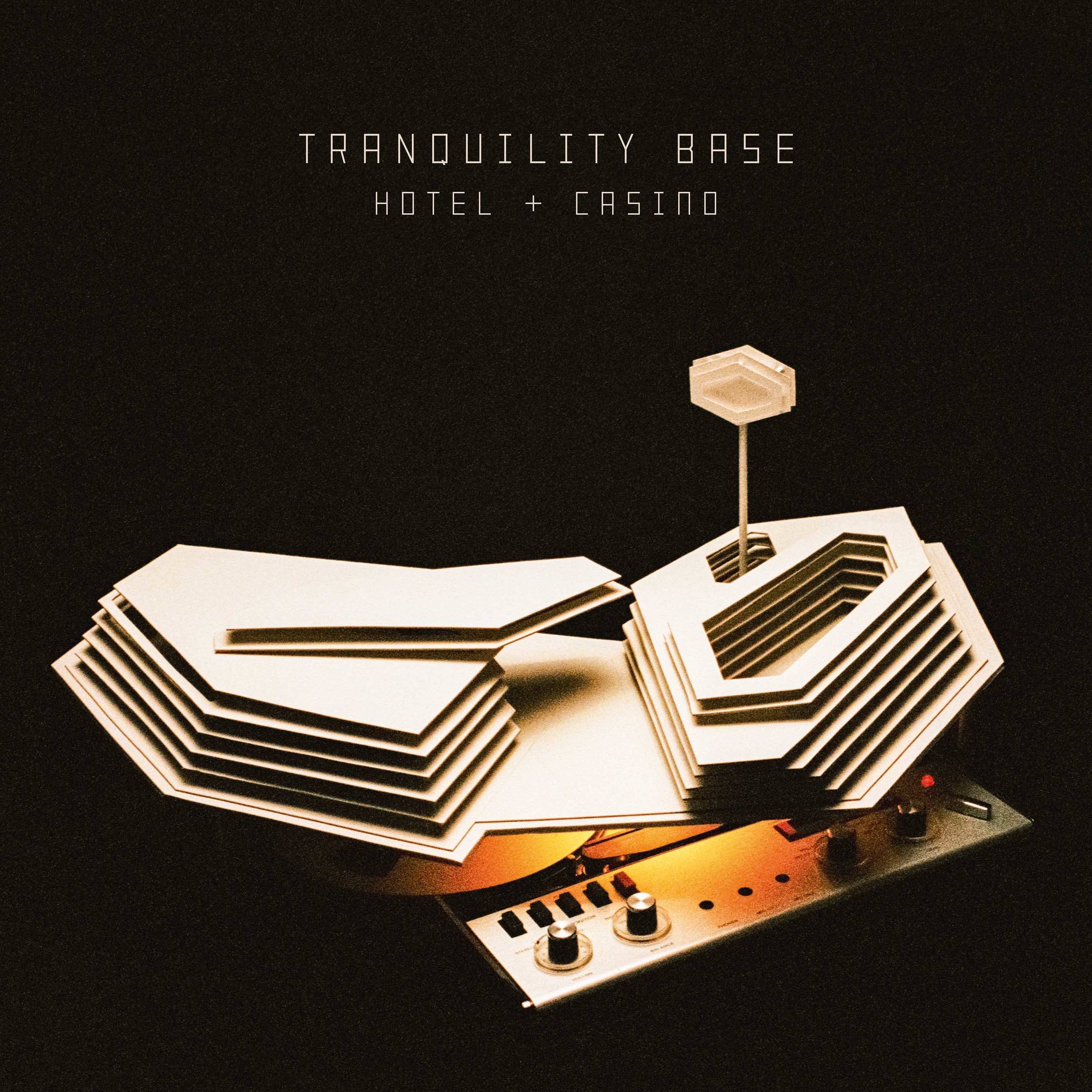Arctic Monkeys
Tranquility Base Hotel & Casino
DOMINO
8/10
There’s something about the aesthetic of the past—it doesn’t just evoke a different time, but a dimension and universe of its own. The sustaining power of films, albums, and artwork might be the most potent proof of non-linear time that we have, and with Arctic Monkeys’ canonical tale of the Tranquility Base Hotel & Casino, you’ll experience some warped reality in which the future is so clogged with technocratic nonsense, it’s lost its allure. Instead, people here dream only of the whimsy of yesteryear, and how they might manage to get back there.
No, I don’t mean that the Arctic Monkeys are hopping on a “Make America Great Again” train; we’re talking music here. After the epic proto-metal of Humbug, the surfy Suck It and See, and the spit-curl-and-switchblade swagger of AM, Tranquility Base is their fourth love letter in a row addressed to the sounds of the ’60s and ’70s, this time mimicking Phil Spector’s Wall of Sound and Sly Stone’s psychedelic funk. It’s albums like these that force me back into a recurring hypothesis: For so many legends to experience their peak within that same fifteen-year period of the twentieth century, it seems like culture reached a musical state of flow then that we haven’t rekindled since.
Should Arctic Monkeys remain cozily in that era forever, no one should fault them. And yet, unlike many nauseatingly nostalgic acts today, it never sounds pastiche. In fact, their achievement of such a celestial and futuristic feel on Tranquility Base using exclusively eons-old equipment (organs, harpsichords, vintage synthesizers, ham-radio guitar frequencies) acts as a perfect setting for the album’s literary, sci-fi themes, which target the excess of devices that distract us from what we already have. On “Batphone,” Alex Turner muses of “Killer pink flamingos, computer controlled / Panoramic windows looking out across your soul” over a tiptoeing staccato synth and a Carol Kaye–plucked bass line that makes for their deepest groove to date.
On album highlight “Four Out of Five,” Turner builds a grand and unforgettable chorus, but juxtaposes it with the lyrical content of painful Downtown LA small talk: “Cute new places keep on popping up since the exodus, it’s all getting gentrified / The Information Action-Ratio is the place to go, four stars out of five.” Like Black Mirror examined the horrific future of star scores, Turner illustrates a herd of bored colonists, displacing natives and pettily rating their culture afterwards. The information-action ratio is a Neil Postman concept from his book Amusing Ourselves to Death: “We are glutted with information, drowning in information, don’t know what to do with it,” Postman says. Under its bubble-gummy melodies, Tranquility Base is full of these stealthy allusions.
But Turner reaches a lyrical pinnacle of his career on “Science Fiction,” with the imagery, “Swamp monster with a hard-on for connectivity / The ascension of the C.R.E.A.M. / Mass panic on a not-too-distant future colony / Quantitative easing.” Thirst traps, cash ruling everything, numerical likes. “Highlight dangers and send out hidden messages, the way some science fiction does,” he frankly concludes. He’s certainly not the only landmark musician of 2018 to fear the direction our digital culture is headed. Tranquility Base is built like a Ridley Scott film—foreboding the bleakest of futures, yet you still desperately want to step right inside that realm and join the resistance.







